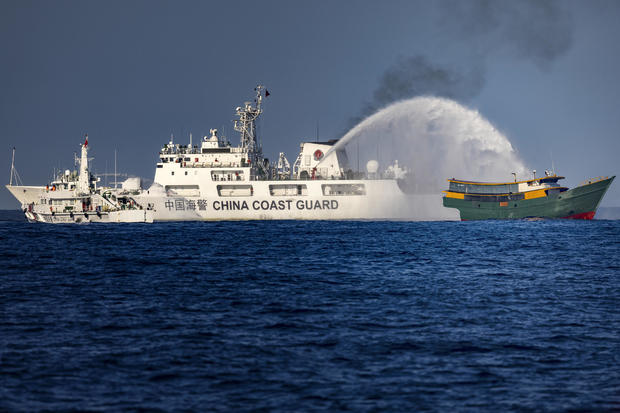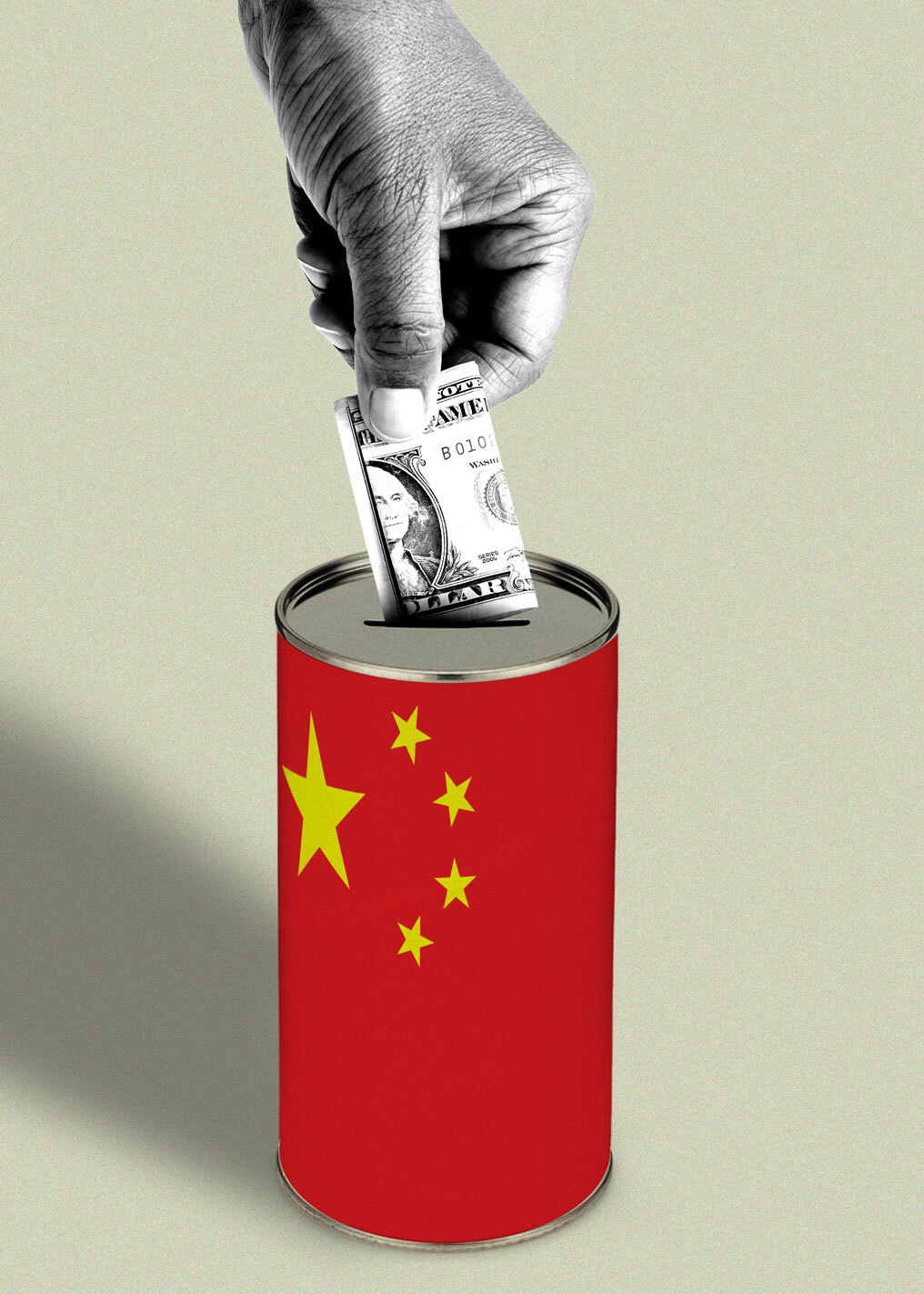As Philippines sailor hurt in South China Sea incident, U.S. cites risk of "much more violent" confrontation
The White House condemned China on Monday over what the Philippines called an "intentional high-speed ramming" by the Chinese Coast Guard of one of its resupply ships in the South China Sea. One Filipino sailor was seriously wounded in the collision, the Philippine military said.
"We're deeply concerned about the injuries suffered by the Philippine sailor, obviously wishing him the best in terms of his recovery," National Security Council spokesman John Kirby told journalists Monday. "This kind of behavior [by China] is provocative, it's reckless, it's unnecessary, and it could lead to misunderstandings and miscalculations that could lead to something much bigger and much more violent."
The Philippines and China accused each other of causing the confrontation, involving a Philippine navy vessel carrying supplies to a small group of personnel on a grounded warship in the Second Thomas Shoal, which has long been regarded as a flashpoint that could spark a bigger conflict between the U.S. and China.
The U.S. and the Philippines have a mutual defense treaty that obligates the two countries to help defend one another in any major conflict.
On Tuesday, State Department spokesperson Matthew Miller said U.S. Deputy Secretary of State Kurt Campbell spoke over the phone with his Philippine counterpart and both reaffirmed that the treaty "extends to armed attacks on Philippine armed forces, public vessels, or aircraft — including those of its coast guard — anywhere in the South China Sea."
There have been several incidents in recent months near the shoal, where a deliberately grounded Philippine naval ship called the Sierra Madre is maintained by the Philippine military. An attack on the ship could be viewed by the Philippines as an act of war.
Philippine Defense Secretary Gilberto Teodoro Jr. said after the incident on Monday that the Philippine armed forces would resist "China's dangerous and reckless behavior," which "contravenes their statements of good faith and decency."
China has become increasingly assertive in its claim to nearly all of the South China Sea, which has led to tension with other countries that also have claims to the waters, including the Philippines, Vietnam and Taiwan.
A new Chinese law that came into effect Saturday authorizes China's coast guard to seize foreign ships "that illegally enter China's territorial waters" and to hold foreign crews for up to 60 days, the Reuters news agency reported.




